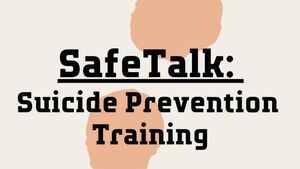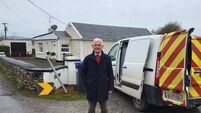County councillors in Laois to receive training on suicide awareness

Councillors agreed to take part in the training programme on how to identity those who may be in distress or in a crisis situation.
COUNCILLORS in Laois have agreed to take part in a training programme on how to identity those who may be in distress or in a crisis situation.
At the October meeting of Laois County Council cllr Vivienne Phelan proposed that the council organise the SafeTALK (Suicide Alertness for Everyone) training programme for all councillors.
She said that SafeTALK is an internationally recognized evidence based programme that prepares people to recognise those who may be having thoughts of suicide and to connect them to suicide prevention services.
Those taking part, she said, learn how to help those in crisis and how to support people.
She said the reason why she was proposing the motion was because: “I have done the programme a couple of times. It’s an excellent way to learn clear and practical information and what you need to do if you came into contact with someone who needs help.”
Cllr Phelan said: “We all know the importance of mental health. I believe the 19 councillors here in Laois are uniquely positioned to make a difference in this regard. We’re all active on the ground in our towns, villages and rural areas. We’re often engaging with people who might find themselves in a vulnerable position in terms of housing, finances, isolation, loneliness, among other issues.
“We all take phone calls and emails everyday but we never really know who’s at the end of the phone and what kind of a situation they might be facing. Put simply, having the knowledge and confidence to identify and engage with those in crisis, the training programme could save somebody’s life. By completing this programme it would send a strong message from councillors that we support mental health and it would be an effective way to help play our part in breaking down the stigma associated with suicide and mental health issues.”
Cllr Aisling Moran said: “Sometimes people think that we are counsellors instead of councillors. Sometimes we could give the wrong advice. We talk and listen to what people say, but because we’re not qualified in this area, sometimes we may not give the advice that is needed.”




